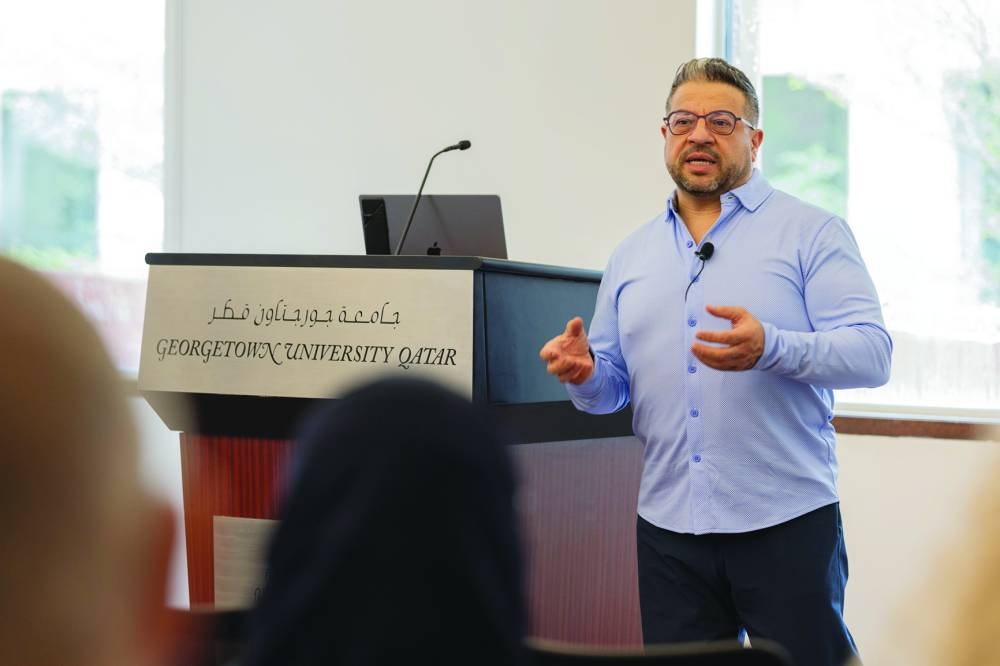Georgetown University in Qatar (GU-Q) hosted leading scholar Dr Bassam Haddad for a series of engaging exchanges on lessons emerging from the Syrian conflict, the war on terrorism, and sociopolitical issues currently shaping the Middle East region.
Dr Haddad, the founding director of the Middle East and Islamic Studies Programme and associate professor at the Schar School of Policy and Government at George Mason University, shared ongoing research from his new book, Understanding The Syrian Tragedy: Regime, Opposition, Outsiders.
He examined the transformation of the Syrian revolution from a legitimate civil uprising in 2011, to a complex political stalemate. “Almost 13 years after the start of the Syrian uprising, Syria finds itself embattled, divided and impoverished with no positive end in sight,” he said, referring to the situation as a persisting “calamity” with a heavy humanitarian toll for Syrians across the political spectrum. “More than any other case of mass uprisings in the region, it continues to be shrouded in political power plays and contradictions at the local, regional and international levels.” Syria’s various external supporters and allies in subsequent years contributed to the confusion, he said, pointing out that the disparate interests of these state and non-state actors, and the transactional nature of their support often prioritised a specific balance of power over the underlying principles of the revolution.
“During the first three to five years after 2011, the uprising in Syria was transformed from a democratic protest against dictatorship to a regional and international proxy war with multiple attempts to redraw the political and territorial map of the entire region, not just Syria,” explained Dr Haddad.
An unintended outcome has been the militarisation and radicalisation of the conflict, as well as the disillusionment of the original activists and revolutionaries.
“The situation is quite bleak, and the best option is for the Syrian economy to improve, which we can see signs of here and there, but it’s likely to take a long time,”
he concluded.

Dr Bassam Haddad speaking at the event
